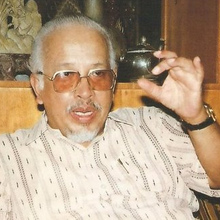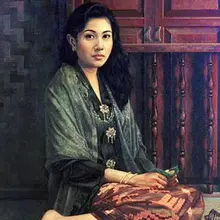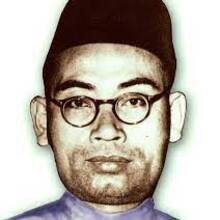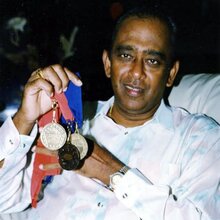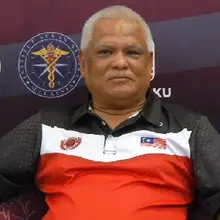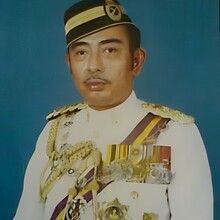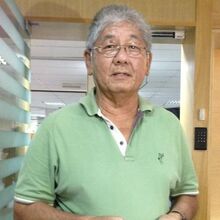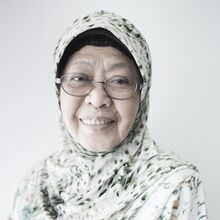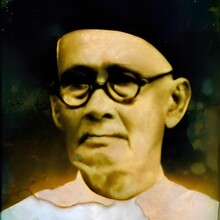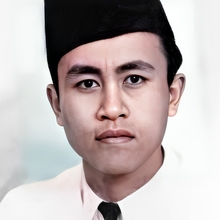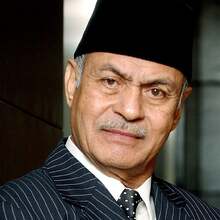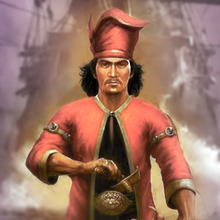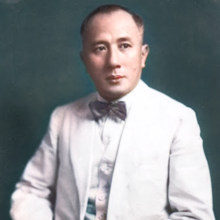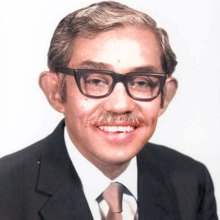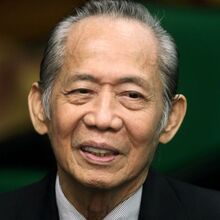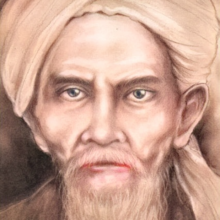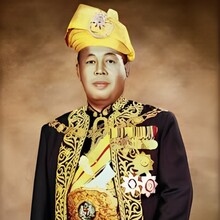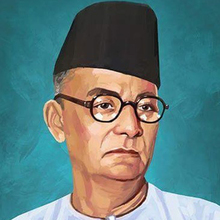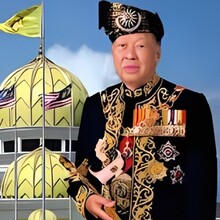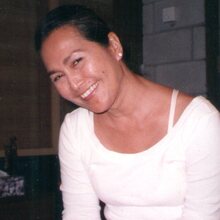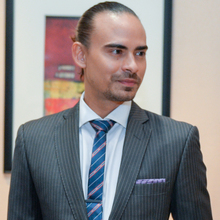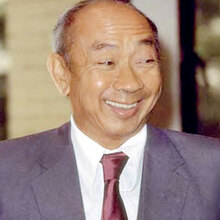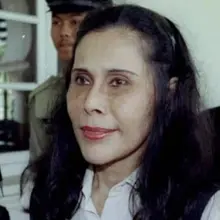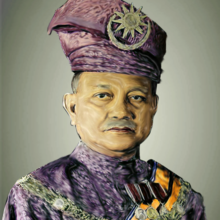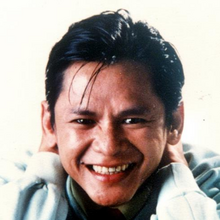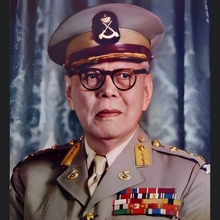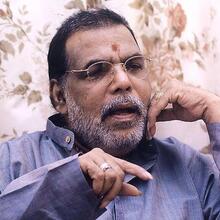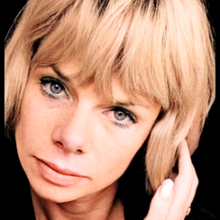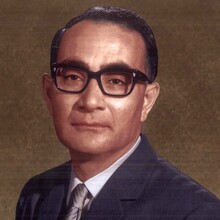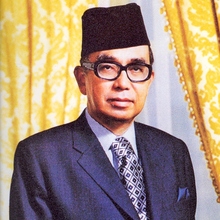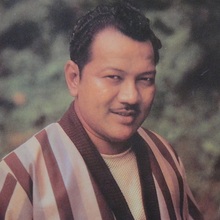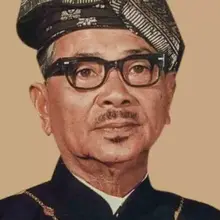 Tuanku Sir Syed Harun Putra ibni Almarhum
1920 - 2000
Raja of Perlis and Yang di-Pertuan Agong
Tuanku Sir Syed Harun Putra ibni Almarhum
1920 - 2000
Raja of Perlis and Yang di-Pertuan Agong
 Azyumardi Azra
1955 - 2022
Public intellectual and Muslim scholar
Azyumardi Azra
1955 - 2022
Public intellectual and Muslim scholar
 Punch Gunalan
1944 - 2012
Badminton player, coach and administrator
Punch Gunalan
1944 - 2012
Badminton player, coach and administrator
 Halim Perdanakusuma
1922 - 1947
Deputy Army chief-of-staff
Halim Perdanakusuma
1922 - 1947
Deputy Army chief-of-staff
 Onn Jaafar
1895 - 1962
Menteri Besar of Johor and President of UMNO
Onn Jaafar
1895 - 1962
Menteri Besar of Johor and President of UMNO
 Mahsuri binti Pandak Mayah
1760 - 1819
Mahsuri binti Pandak Mayah
1760 - 1819
 Yasmin Ahmad
1958 - 2009
Film director, writer and scriptwriter
Yasmin Ahmad
1958 - 2009
Film director, writer and scriptwriter
 Jill Bennett
1931 - 1990
Actress
Jill Bennett
1931 - 1990
Actress
 SM Nasimuddin SM Amin
1955 - 2008
Founder of Naza Group
SM Nasimuddin SM Amin
1955 - 2008
Founder of Naza Group
 Tan Aik Mong
1950 - 2020
Badminton player
Tan Aik Mong
1950 - 2020
Badminton player
 Tun Perak
1400 - 1498
Chief minister of Malacca Sultanate
Tun Perak
1400 - 1498
Chief minister of Malacca Sultanate
 Jins Shamsuddin
1935 - 2017
Film actor, director, politician, writer
Jins Shamsuddin
1935 - 2017
Film actor, director, politician, writer
 Sabiamad Abdul Ahad
1956 - 2021
Sport shooter
Sabiamad Abdul Ahad
1956 - 2021
Sport shooter
 Abdul Rahman of Negeri Sembilan
1895 - 1960
First Paramount Ruler of the Federation of Malaya
Abdul Rahman of Negeri Sembilan
1895 - 1960
First Paramount Ruler of the Federation of Malaya
 Raja Ali Haji
1808 - 1872
historian, poet, scholar, and ulama
Raja Ali Haji
1808 - 1872
historian, poet, scholar, and ulama
 Malaysia Vasudevan
1944 - 2011
Playback singer and actor in Tamil cinema
Malaysia Vasudevan
1944 - 2011
Playback singer and actor in Tamil cinema
 Teuku Zakaria
1929 - 1973
Malay entertainment icon
Teuku Zakaria
1929 - 1973
Malay entertainment icon
 Khoo Kay Kim
1937 - 2019
Historian, academic
Khoo Kay Kim
1937 - 2019
Historian, academic
 Adam Mahamed Ismail
1990 - 2019
Celebrity chef and TV host
Adam Mahamed Ismail
1990 - 2019
Celebrity chef and TV host
 Asri Muda
1923 - 1992
President of PAS and Menteri Besar of Kelantan
Asri Muda
1923 - 1992
President of PAS and Menteri Besar of Kelantan
 Hussein Onn
1922 - 1990
Prime Minister of Malaysia
Hussein Onn
1922 - 1990
Prime Minister of Malaysia
 Rosli Dhobi
1932 - 1950
Teacher and activist
Rosli Dhobi
1932 - 1950
Teacher and activist
 Tunku Abdul Rahman
1903 - 1990
First Prime Minister of Malaysia
Tunku Abdul Rahman
1903 - 1990
First Prime Minister of Malaysia
 Burhanuddin al-Helmy
1911 - 1969
President of the Malaysian Islamic Party (PAS)
Burhanuddin al-Helmy
1911 - 1969
President of the Malaysian Islamic Party (PAS)
 Salahuddin Abdul Aziz Shah
1926 - 2001
Sultan of Selangor and 11th Yang di-Pertuan Agong
Salahuddin Abdul Aziz Shah
1926 - 2001
Sultan of Selangor and 11th Yang di-Pertuan Agong
 Sultan Idris ibn Raja Iskandar
1849 - 1916
Sultan of Perak
Sultan Idris ibn Raja Iskandar
1849 - 1916
Sultan of Perak
 Haji Hassan bin Munas
1853 - 1915
Leader of the Kelantan rebellion
Haji Hassan bin Munas
1853 - 1915
Leader of the Kelantan rebellion
 Michael Gough
1916 - 2011
Actor
Michael Gough
1916 - 2011
Actor
 Nguyen Cao Ky
1930 - 2011
Prime Minister
Nguyen Cao Ky
1930 - 2011
Prime Minister
 Fatmawati
1923 - 1980
Sewing the first flag of Indonesia
Fatmawati
1923 - 1980
Sewing the first flag of Indonesia
 Phraya Manopakorn Nititada
1884 - 1948
Prime Minister
Phraya Manopakorn Nititada
1884 - 1948
Prime Minister
 Sudirman Arshad
1954 - 1992
Singer and songwriter
Sudirman Arshad
1954 - 1992
Singer and songwriter
 Ashraf Sinclair
1979 - 2020
Actor and television host
Ashraf Sinclair
1979 - 2020
Actor and television host
 Ismail Abdul Rahman
1915 - 1973
Second Deputy Prime Minister of Malaysia
Ismail Abdul Rahman
1915 - 1973
Second Deputy Prime Minister of Malaysia
 Shuba Jay
1976 - 2014
Actress, businesswoman
Shuba Jay
1976 - 2014
Actress, businesswoman
 Ibrahim Al-Masyhur Ibni
1873 - 1959
Sultan of Johor
Ibrahim Al-Masyhur Ibni
1873 - 1959
Sultan of Johor
 Abdul Razak Hussein
1922 - 1976
Prime Minister of Malaysia
Abdul Razak Hussein
1922 - 1976
Prime Minister of Malaysia
 Mona Fandey
1956 - 2001
Pop singer and witchcraft practitioner
Mona Fandey
1956 - 2001
Pop singer and witchcraft practitioner
 Tan Cheng Lock
1883 - 1960
Founder and president of the Malayan Chinese
Tan Cheng Lock
1883 - 1960
Founder and president of the Malayan Chinese
 Zaleha Ismail
1936 - 2020
Minister of National Unity
Zaleha Ismail
1936 - 2020
Minister of National Unity
We Need -- admin in

